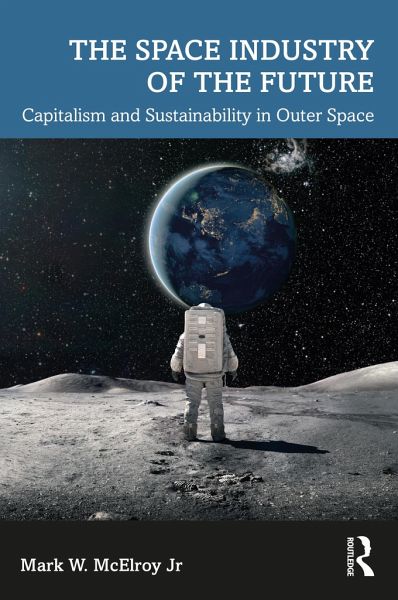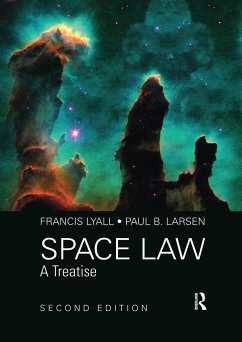
The Space Industry of the Future
Capitalism and Sustainability in Outer Space
Versandkostenfrei!
Versandfertig in 6-10 Tagen
61,99 €
inkl. MwSt.
Weitere Ausgaben:

PAYBACK Punkte
31 °P sammeln!
The Space Industry of the Future consists of the first instance of guidance for the space industry on how value creation in space can occur for the greater benefit of humanity using principles of capitalism and sustainability. The timing of this book is ideal given (1) sustainability challenges facing humanity and (2) that the growth of the commercial space economy is now occurring at a rate never seen before. This book presents an opportune guide written for technical, business, and policy practitioners alike that frames how this industry growth should occur from an integrated values and comm...
The Space Industry of the Future consists of the first instance of guidance for the space industry on how value creation in space can occur for the greater benefit of humanity using principles of capitalism and sustainability. The timing of this book is ideal given (1) sustainability challenges facing humanity and (2) that the growth of the commercial space economy is now occurring at a rate never seen before. This book presents an opportune guide written for technical, business, and policy practitioners alike that frames how this industry growth should occur from an integrated values and commercial perspective. This perspective is presented in the context of the modern technical capabilities of space systems relative to the world's greatest problems.
The guidance contained in this book for the growing commercial space industry includes considerations beyond profit seeking alone. This guidance is founded on a bespoke value creation criteria to apply in the context of for-profit outer space activities that, if used, will result in the maximum value creation that a company is capable of. The criteria are developed and presented through a rigorous discussion on capitalism, economics, value theory, the circular economy, stakeholder management, and ethics. The value creation criteria are then discussed at length in relation to the space industry.
The primary audience for this book is practitioners within the space industry; this includes investors, business managers, policy makers, engineers, and scientists. The secondary audience includes students and researchers, as well as a growing range of parties interested in space policy and entrepreneurship.
The guidance contained in this book for the growing commercial space industry includes considerations beyond profit seeking alone. This guidance is founded on a bespoke value creation criteria to apply in the context of for-profit outer space activities that, if used, will result in the maximum value creation that a company is capable of. The criteria are developed and presented through a rigorous discussion on capitalism, economics, value theory, the circular economy, stakeholder management, and ethics. The value creation criteria are then discussed at length in relation to the space industry.
The primary audience for this book is practitioners within the space industry; this includes investors, business managers, policy makers, engineers, and scientists. The secondary audience includes students and researchers, as well as a growing range of parties interested in space policy and entrepreneurship.














